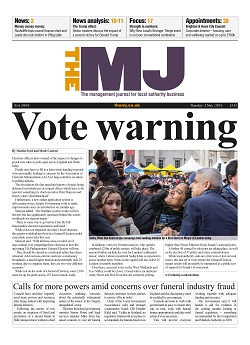Local Links
The innovative new Local Links pilot project is designed to put control over services for older people back into the communities where they live. The scheme has established new community-based support planners in parts of Leeds.
Building on the work of the existing Neighbourhood Networks, which are run by and for older people, the locally-based planners work on developing individual support plans, arranging older people’s services and managing their personal budgets.
Two schemes, Armley Helping Hands and Garforth Neighbourhood Elders Team, have established Community Interest Companies to employ their support planners.
Because they are based within the community, the support planners are better placed to use local services including small and medium enterprises and voluntary sector organisations, as well as stimulating the development of local businesses.
Planners work with customers to produce care packages that include voluntary and community support, tailored to the individual customer needs.
The project has been put together using funding from Big Society Capital Bank as part of their Combining Personalisation with Community Engagement programme.
Mick Ward, Leeds City Council’s head of commissioning for adult social care, said: ‘The Local Links project is connecting people back into their communities, giving choice and control over services to groups and organisations who know their local areas well.
This approach helps everyone – the local economy, people who use services and those who provide them’.
Learning Disability Services
Learning Disability Services (LDS) in Leeds are set to be transferred into a new social enterprise project. The plans will see Leeds City Council’s LDS move into a new business model, which would be owned and operated entirely by staff.
With an annual budget of £20.9m, the service supports more than 1,000 vulnerable adults and provides help and advice as well as hands-on personal care.
Leeds City Council’s executive board approved the start of initial consultation for the transfer, which would represent the biggest shift to a social enterprise model of its kind ever to take place in Leeds.
Social enterprises are businesses that work for the community rather than to make a profit. Any surplus money generated would be used to either improve existing services or for the benefit of the wider community.
Cllr Adam Ogilvie, Leeds City Council’s executive member for adult social care, said: ‘Like many local
authorities, we are facing immense financial pressures, which mean we have to think of creative ways of providing and commissioning services while still delivering on our pledge to provide better lives for our service users.
‘Under a social enterprise model, service users and their carers will still receive the same high-quality support they do now, dealing with the same staff in the same buildings.
‘But what these proposals would allow us to do is ensure that the vital support provided by the LDS remains protected and secure at a time when we are facing unprecedented cuts to our budget.’
The LDS currently employs more than 700 staff, who would all transfer to the new model with the same terms and conditions.
Want full article access?
Receive The MJ magazine each week and gain access to all the content on this website
with a subscription.
Full website content includes additional, exclusive commentary and analysis on the
issues affecting local government.
Already a subscriber? Login



